With graduation approaching, seniors are wrapping up their classes and taking some time to reflect on their past four years at UP. Some students are heading to grad school or starting a new job. Others are still figuring out what they want to do in this next stage of their lives.
Post-grad life can be difficult to navigate, so before seniors get their diploma on May 5, some professors wanted to share some parting advice:
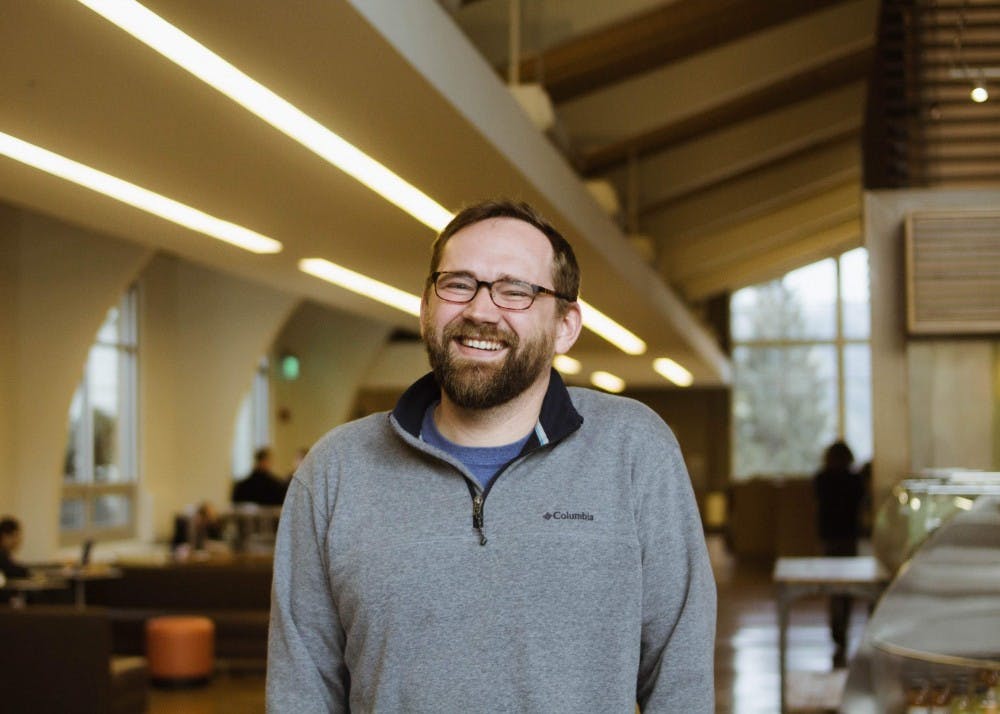
Turnbloom holds his office hours in The Commons. He advises theology majors to not be in a hurry.
David Turnbloom (assistant professor of theology):
"Don’t be in a hurry. Life is still very much beginning in many ways and you have a lot of time and so we put a lot of pressure on ourselves needlessly, especially when we’re starting something new, to do something perfectly instantly and I think we miss a lot when we do that. So, don’t be in a hurry. Take time to appreciate the things around you and try to let yourself develop gradually.
With theology, as with most of the humanities, we are interested in understanding the depths of the human condition and you cannot do that without living and paying attention to all those aspects of life. So, if you are in a hurry to get somewhere, your eyes will not be open as much as they would be otherwise. So, if you’re going to do theology well, if you’re going to minister the people, if you’re going to help people think through their human experiences, you have to be able to pay attention to what’s going on in your own life otherwise you’ll never be able to listen to other people well."
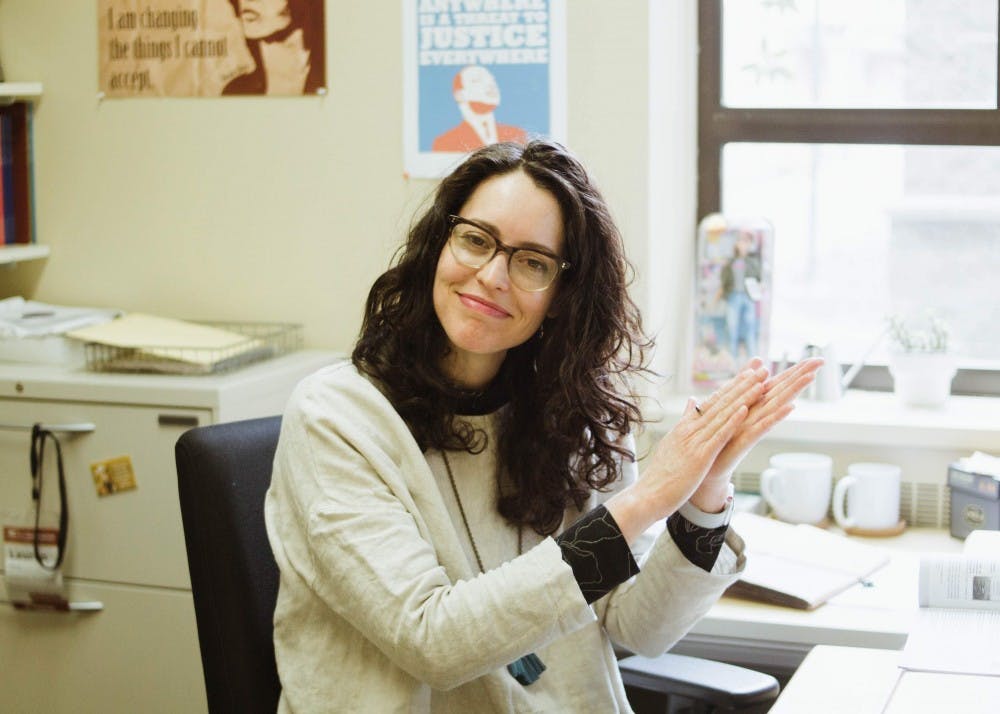
Alfrey offers a round of applause for graduating seniors and reminds sociology majors that, although some employers may not recognize the significance of their degree right away, there is power in understanding group-level patterns and behavior.
Lauren Alfrey (assistant professor of sociology):
"There are lots of ways that you can translate your major. There’s probably extra work that sociology majors have to do to explain to an employer why their way of seeing the world is important and useful and powerful. So, obviously, there might be a more direct way to do that--if you’re working for a nonprofit, the Peace Corps, or some sort of social justice organization I think most folks in those spaces naturally understand the role that sociology can play and having structural analyses of social inequality or whatever, but I would say that for people that are thinking of, say, a business career, or doing something in politics, or working in marketing, there are all kinds of ways that understanding group-level patterns and behavior can be really useful especially in an era of new technology and data.
Take your time. Recognize that probably most of your twenties are going to be spent figuring things out and that’s okay. Trust that even though you might not know precisely what you want to do, a lot of adults much older than you still don’t know themselves.
If you’re thinking about graduate school, my advice would be to take some time between graduating and applying to really figure yourself out, maybe get some additional skills, and really know that that’s something you want to pursue before you apply and enter."
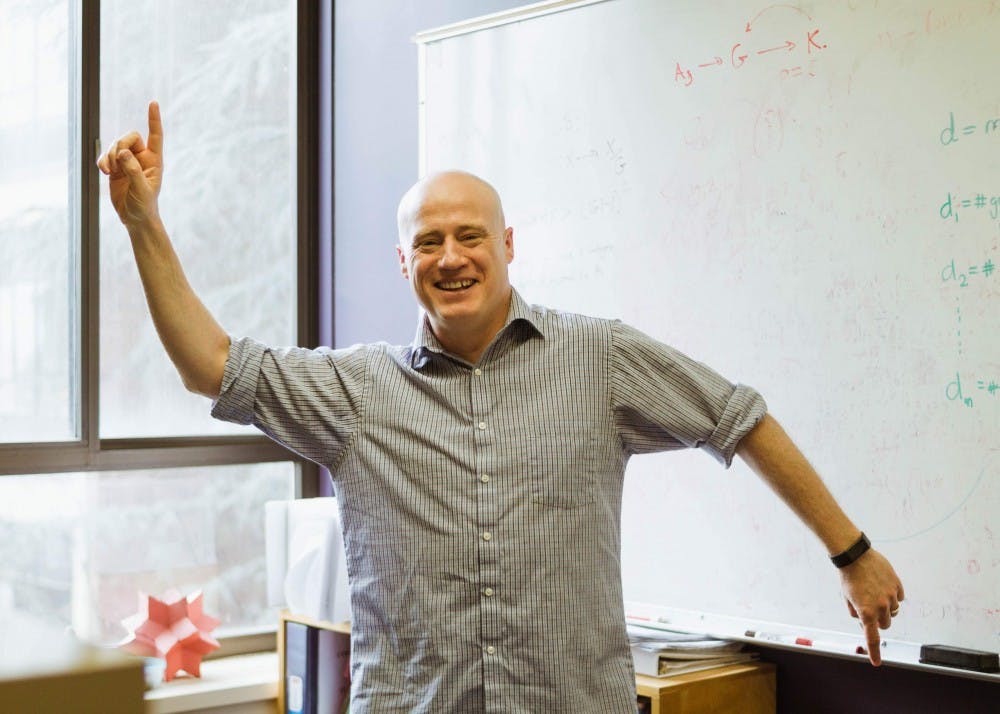
Wootton demonstrates a pose he would strike for his calculus students. The pose mimics the graph of y=x^3.
Aaron Wootton (professor of mathematics):
"I think the most important thing they’ve learned as math majors is to problem solve. And that problem solving can be applied to anything so they shouldn’t feel pigeonholed. Lots of people feel pigeonholed in mathematics as 'I have to go into education' or 'I have to go to graduate school' or something like that. Math majors can do anything...So, I think my advice to them is know what they’ve learned and that is problem-solving and know that it’s opened pretty much every door to them.
There will be setbacks and everyone will go through setbacks. I went through my own setbacks and the most important thing to do is to learn from those... Every major point of my own growth I can directly attribute to a setback. Expect setbacks and learn from those setbacks. Don’t take them personally. Learn from them. I guess the other thing would be never be afraid to ask for help.

Saturn, while sending lots of love to her graduating seniors, believes that there are no bad opportunities and there are lessons to be learned from every moment.
Sarina Saturn (associate professor of psychology):
"My advice would be to not worry so much about making the right decision or for having the perfect thing lined up. There are no mistakes. And even entering on a path that might not be right for you, there are some beautiful lessons there that will always serve you no matter where you go.
For psychology, it is often times where you feel like you either need to have grad school lined up or some sort of job that is related to social services or helping people and sometimes that can create anxiety if you don’t have the perfect thing lined up. One thing that I’ve noticed is that no matter where you go in life, you are working with people so there is psychology everywhere you go.
Also, if you didn’t have a grad school program lined up, the best thing you can do is find great opportunities to work with people and all of those are going to serve you no matter where you go in life. For those people who have this gap year and feel a lot of anxiety of 'I don’t have a job lined up,' 'I’m going to move back home,' there are some beautiful opportunities to work with populations that you’d love to serve in the future and even if you don’t find a dream job because they’re hard to line up, sometimes I just highly recommend volunteering and finding those populations that you have a soft-spot for and that you’d like to serve and to work there. You can always get a job at the mall to pay the bills while you end up doing some volunteer work with various people.
Learning about how people tick and what makes you tick and also learning about the underpinnings of emotionality, suffering, social structures--it’s just such a great heart-opening experience to understanding the world around you and understanding yourself. No matter what you do in life, you’ll always have those lessons to carry with you."
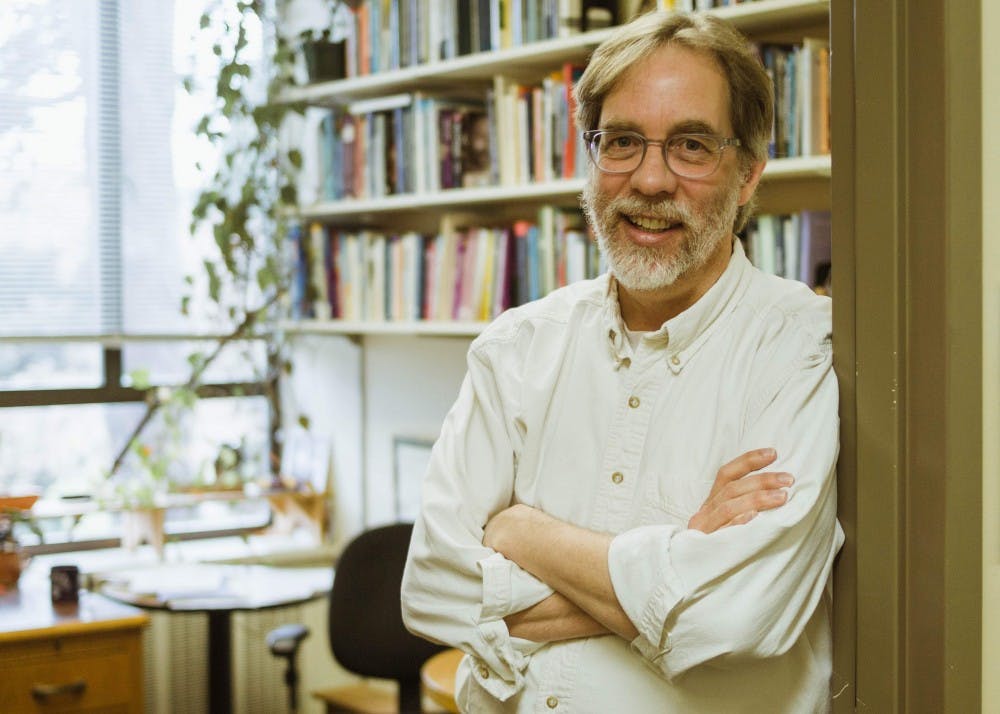
Kerssen-Griep believes that graduating seniors know more than they think they do.
Jeff Kerssen-Griep (professor of communication studies):
"What I like to do is to remind people how much they already know about the organic machinery that other people think is just magic. You see everything working now in a way you didn’t before. Comm is at the center of that because you’re seeing social interaction as something that’s forming everything, not as the product of everything. Remember how much you know that other people don’t know about what’s actually happening in a situation. You know more about what’s happening than most people who are present and there is incredible power in that. And incredible kindness available in it…and grace.
All that stuff is available once you recognize that you’re not being blown about. You’re more the wind and less the leaf if you like that metaphor. Instead of feeling like interactions and relationships just happen to you, suddenly you recognize the role you’re playing in those for yourself and you remind yourself of that and you remind yourself of ways to be intentional about it. So mostly what I’m saying is, you see and know more about what’s going on in every situation that’s social than most other people do."
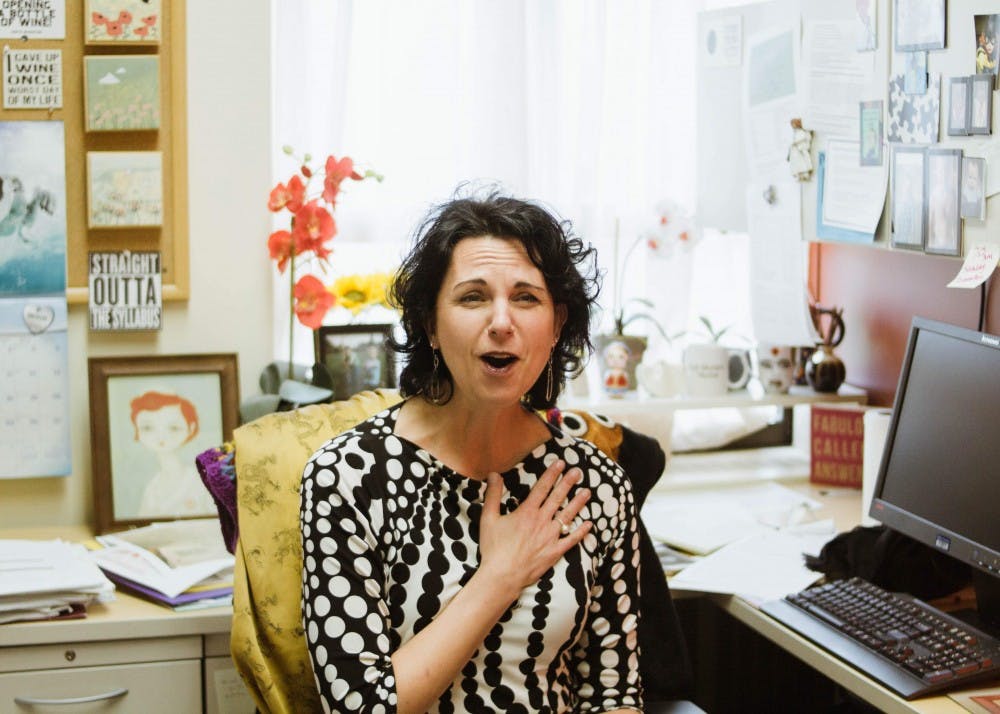
Wyss imagines herself watching her seniors walk the stage at graduation with great emotion and pride. She advises future nurses to practice self-care.
Halina Wyss (assistant professor of nursing):
"The stress level is very high (for nursing students). I have many boxes of kleenex in my office because, frequently, there’s a lot of emotion in here. It feels like every semester the stress level gets more and more and the inability to cope with some of these things.
Nursing students--they have classes, and then they also have clinicals. It’s this balance between 'I have to prep for clinicals and yet I have this huge exam to do.' They’re stressed as a population and I think I spend the majority of my time trying to bring the stress down. I could say something really trite like 'Don’t sweat the small stuff,' but that wouldn’t mean anything. That’s not really good advice.
I have a very good friend who’s a philosopher and during some of my darker moments, he said to me 'Halina, you know what? Life isn’t a puzzle to be solved. It’s a mystery.' And if you think about it like that, maybe things won’t seem so like you have to solve something. That is the beautiful thing about life. Life is a mystery not a puzzle to be solved.
I think a lot of the younger students in the nursing program are kind of shell-shocked when they get thrown into clinicals in a hospital setting and they’re dealing with people dying and they’re dealing with people that are really sick. There’s this sense of this huge responsibility and they don’t want to kill anybody and when you don’t have a lot of life experience, it can be paralyzing. I think being kind to yourself and allowing yourself to feel that fear and to be able to talk about it makes it more palatable.
Be comfortable with being uncomfortable because they’re going to be uncomfortable for a long time. They're going to graduate and then they’re going to be thrown into these new careers. It’s going to start all over again and they’re going to be like 'I don’t know anything. I just graduated from school and here I am. I have my nursing license and I feel like I don’t know anything.' It’s going through that all over again and it’s normal and it’s okay. That’s just what it is.
You graduate from here with whatever degree you have and you’re expected to go get a job and do whatever it is you studied for four plus years to do and that’s very different. Being a student is very different from being an employee. It’s a completely different world and it’s kind of like starting over again and 'Is it going to be enough? Am I going to like it?' That’s universal.
The earlier you learn about yourself and how you cope with uncomfortable situations, the happier you’ll be. It takes a lot of time and work to figure out what stresses you out and why it stresses you out so you can work on that to make it less intense. I tell a lot of my students in here, therapy is not a bad thing. Therapy, I think, everyone should have somebody to talk to. Maybe not a licensed therapist, but they need that support. You need to have those support systems in your life and if you don’t have those, it makes it really hard."
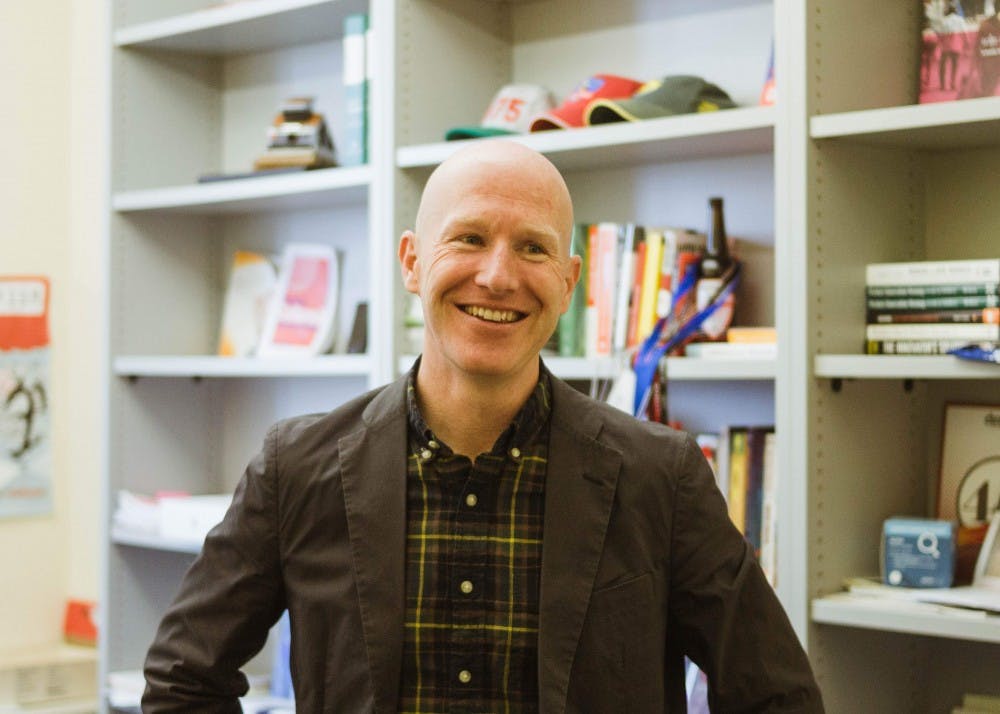
Parkman advises his graduating seniors to stay open-minded because things don't always go according to plan.
Ian Parkman (associate professor of marketing):
"It’s easy for me to say and to sit back in my chair in my sportcoat and talk about 'Oh, let me tell you guys how it is,' but I think what I usually try and do is really emphasize the importance of just being open-minded and having a bit of openness to epiphany. Anyone who tells you later in life it was a clear plan, they knew they were starting at point A and going to point B and ending at point C, is full of crap.
I caution students not to have a plan. I probably shouldn’t quote Mike Tyson too much here, but everyone has a plan until they get punched, right? I think that’s a really great way to think about life which is to not NOT have a plan, but to be really open to thinking on your feet, have lots of experiences, have lots of coffee meetings with people, you never know what you’re missing out on until you try, try, try lots of things and then, you look back, and the way things work out is it probably wasn’t what you were expecting, it wasn’t what you were planning, but here you are and hopefully, you’re happy.
We are a field unlike maybe journalism or accounting where it’s quite clear what you’re going to do after graduation: You are an accountant, you are a journalist, you’re going to work for a newspaper, you’re going to work for an accounting office. I’m a marketing major? What does that mean? That means anything.
Your first job probably isn’t going to be the thing you love and want to do the rest of your life every morning, but hopefully you will find that over time and the best way to find that is by trying lots of stuff in between."

Reyes-Giardiello, full of excitement for her graduating seniors, preaches the importance of practicing Spanish, traveling and ice cream.
Giannina Reyes-Giardiello (assistant professor of Spanish):
"To continue practicing Spanish as much as they can, but I would like to tell them to travel--to travel a lot. To travel all the time. To make time to travel after they finish here and to travel every year, to travel near, travel far away, travel to places where they can practice their Spanish and to other places as well. To go wherever they have planned to go and other places they have never planned to go. With money, without money, alone, with company, with the love of their lives. Just to discover the world and to feel uncomfortable and to just be there, learning things.
They don’t have to go very far, they just need to travel. If they travel and they don’t have money, they can always eat ice cream because it’s got fat, protein and carbs. They can survive with ice cream! You have a portion of fruit if you get strawberry! You don’t need to have money. You can have a complete meal with ice cream."

In his lab where he studies worms, Wynne advises graduating seniors to do something that makes them happy.
David Wynne (assistant professor of biology):
"This (health sciences) is a huge growth industry and so I think students get led into it. The classic thing would be the student who has never really reconsidered whether or not they want to be a doctor. They set out to be a doctor, or they set out to be a nurse, and maybe they don’t like it that much. But they’ve been doing fine. They’ve been able to jump through each hoop and haven’t stopped to consider 'What do I actually want to do?'
If you have the training to become a doctor, you could also go into policy, you could also go into basic science, you could go into writing. Because of this big growth industry, there’s also a lot of options. I just don’t think students always think real critically about their pathway. That’s the question I want to make sure everyone is thinking about: Do you like your path? Are you going to be happy? Assume that you get what you want, will you be happy with it? Because that’s a question I don’t think students always ask themselves and in particular the physician-type positions because if you’re shooting to be a doctor because it’s something impressive to do, and you’re going to be financially well off once you’re a doctor, are you really thinking about what day-to-day life is going to be? Doctors talk to people all day long. Is that what you want to do?
Because a lot of students I’ve found, especially really really good ones, they’re not always the extroverts. They don’t really like talking to people. If you’re setting yourself up for that kind of disconnect between what you like to do and what your personality is well-suited for and what you’re actually doing, then you’re potentially not going to be as happy as you could be in another career. Even bio majors who are doing everything their parents wanted them to do, I think this is the time to say 'What’s right for me now? I’ve impressed my parents enough. Let me do something that I think I’m excited about.'"
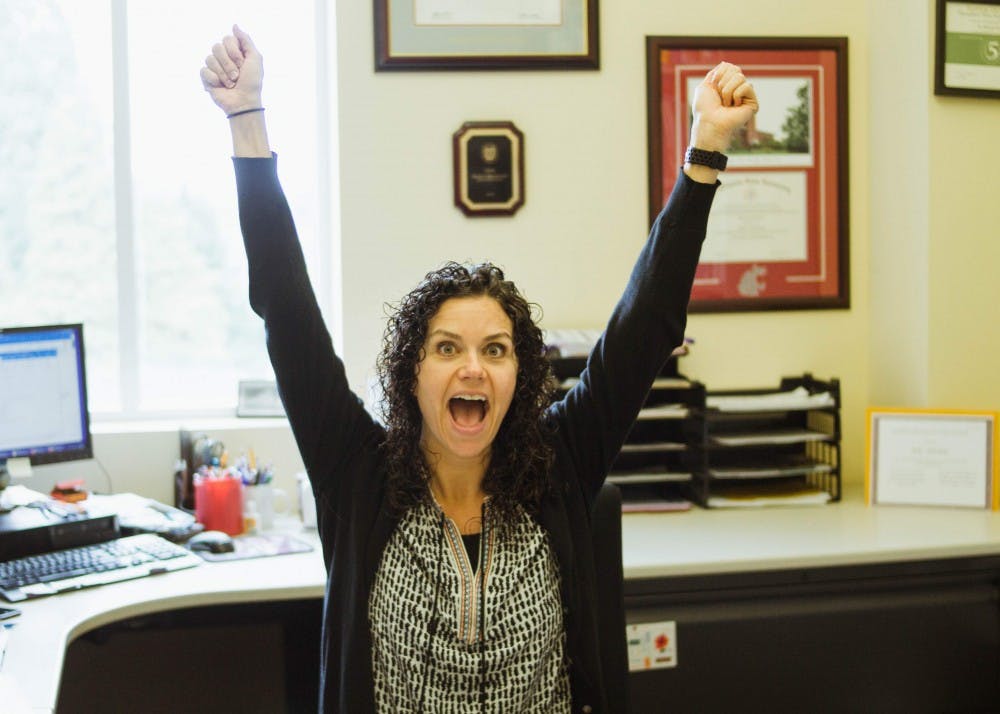
Merk's advise to future teachers is to not only focus on what may have gone wrong, but to also pay attention to what went right in the classroom.
Hillary Merk (associate professor of education):
"Teachers take on a lot. Each child comes to the classroom with a number of concerns, issues, things to share, exciting news, and teachers take all of that in and then have to process that and remember that they have a position in that classroom too. So, my advice to graduating seniors would be remember yourself in that classroom community and to take time for yourself. Teacher burnout happens very fast if teachers don’t consider their own personal needs as well.
I would also say, one thing I liked to do when I was an elementary teacher was before the kids left every day was say 'Okay. Tell me one thing that we did today that was exciting or you want to tell your parents about' so that when they leave that day and their mom or dad or guardian says “What did you do in school today?' they don’t say 'I don’t know!” or “Nothing!' They have an actual answer for that. So, for the teacher side of that, I would say, before you leave your classroom every day, find one thing that was exciting. One accomplishment for that day or one thing you want to work on harder the next day because there’s always 'I need to do this, this and this,' but we forget to find joy in why we are classroom teachers and I think that’s really important to remember. 'What did go well today? Something went well, not every minute of every day crashed and burned. There was some element of the day that was a success.'
I would just encourage teachers to think about those little moments that continue to bring them back to the classroom. Teachers don’t really recognize the impact that they have on kids or young adults every day because they’re so immersed in all of the other things that go into being a teacher so, finding that joy will help them realize they’re making a difference."

Jones applauds graduating seniors and reminds her engineering students that their degrees and knowledge are valuable in a multitude of fields not just engineering.
Sharon Jones (dean of Shiley School of Engineering, professor of civil engineering):
"To be open to exploring opportunities that are not strictly in the area that they studied when they were undergraduates because there’s so much that they can do with their engineering degree that goes well beyond designing a particular product or anything else, and they should be open to that because there are just so many opportunities out there where engineers could actually play a huge factor in improving the lives of others. And that could be in the policy field, that could be in the business world, that could be in teaching, that could be in any area.
You’re going to work for an extremely long time of your life. Right? So, my advice is actually not to rush into it. If you are able, we realize there are a lot of people who aren’t able to just take some time to just relax and travel and enjoy things, but I do think it’s an important part before you just step from one pretty hectic activity in terms of college into another hectic activity that’s going to last 30 or 40 years of your life. Just take some time to enjoy. And even if you have to start that job right away, make sure you really have a good work/life balance so that you can enjoy things, exploring, be where you want to be."
Annika Gordon is the multimedia editor at The Beacon. She can be reached at gordon20@up.edu.







